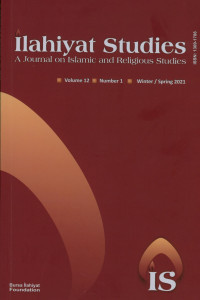The Poetics of Iblīs: Narrative Theology in the Qurʾān by Whitney S. Bodman
First paragraph: To engage in the delineation of a “narrative theology” of evil as it is found in the world presumes that a discussion of evil is communicated most easily and profoundly through stories. For Whitney Bod-man, narrative has the ability to capture “the tragic dimensions of life, the ambiguities of fate, the confusion of flawed characters, noble intentions with ruinous outcomes.” (p. 1) The problem of evil, he suggests, cannot be resolved into a dualistic vision of the struggle between the divine and the human because that “belies the truth of human experience;” (p. 1) such a perspective is the realm of normative dogmatic theology and lacks the insights that narratology can provide.
The Poetics of Iblīs: Narrative Theology in the Qurʾān by Whitney S. Bodman
First paragraph: To engage in the delineation of a “narrative theology” of evil as it is found in the world presumes that a discussion of evil is communicated most easily and profoundly through stories. For Whitney Bod-man, narrative has the ability to capture “the tragic dimensions of life, the ambiguities of fate, the confusion of flawed characters, noble intentions with ruinous outcomes.” (p. 1) The problem of evil, he suggests, cannot be resolved into a dualistic vision of the struggle between the divine and the human because that “belies the truth of human experience;” (p. 1) such a perspective is the realm of normative dogmatic theology and lacks the insights that narratology can provide.
Keywords:
The Poetics of Iblīs, the Qurʾān Whitney S. Bodman,
- ISSN: 1309-1786
- Başlangıç: 2010
- Yayıncı: Bursa İlahiyat Vakfı
Sayıdaki Diğer Makaleler
Opposition to the Bektāshī Order in Egypt
Iskandar ibn Aḥmad's epistle in refutation of Christians
The Poetics of Iblīs: Narrative Theology in the Qurʾān by Whitney S. Bodman
Moral Agents and their Deserts: The Character of Muʿtazilite Ethics, by Sophia Vasalou
Al-Suhrawardī’s Critique of Ibn Sīnā’s Refutation of the Platonic Forms
